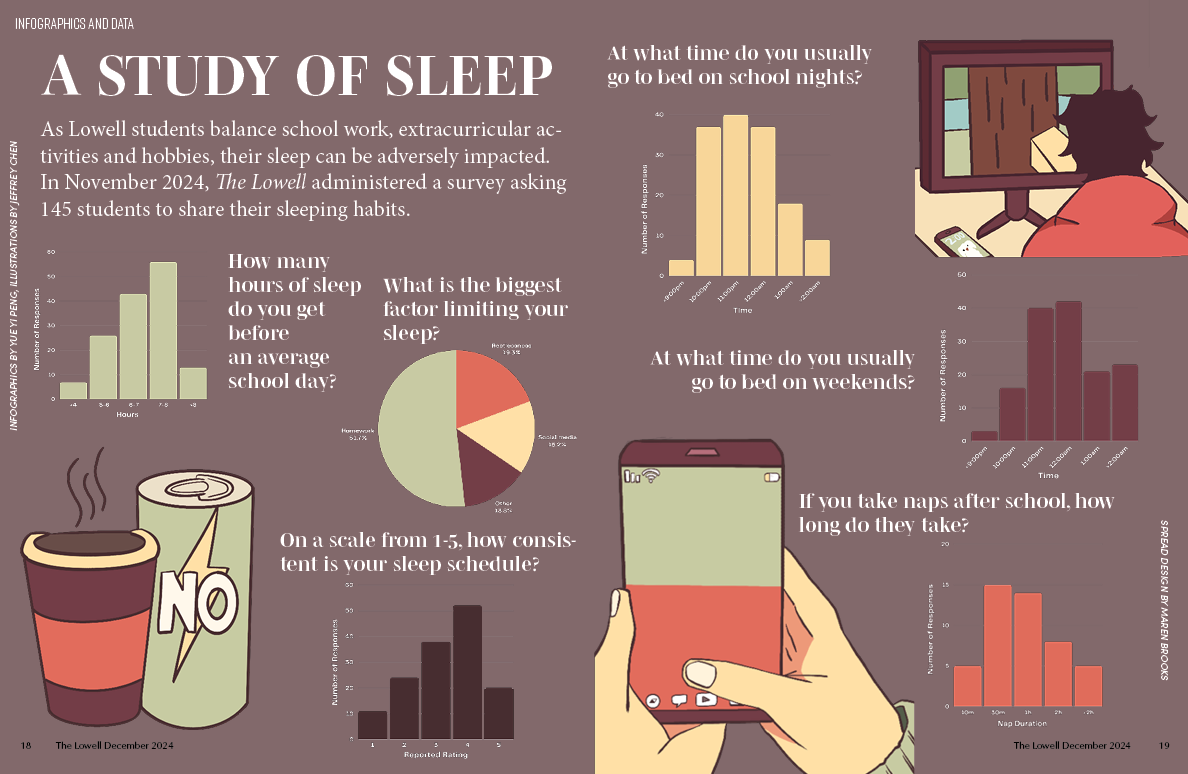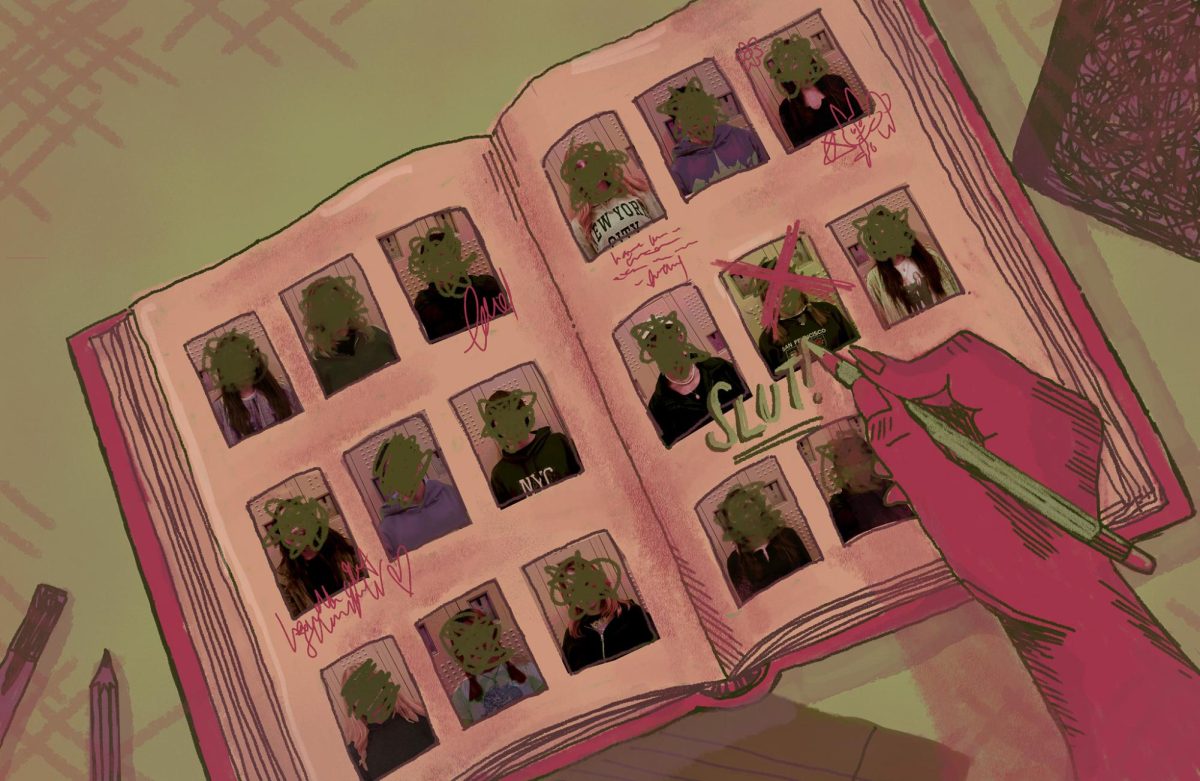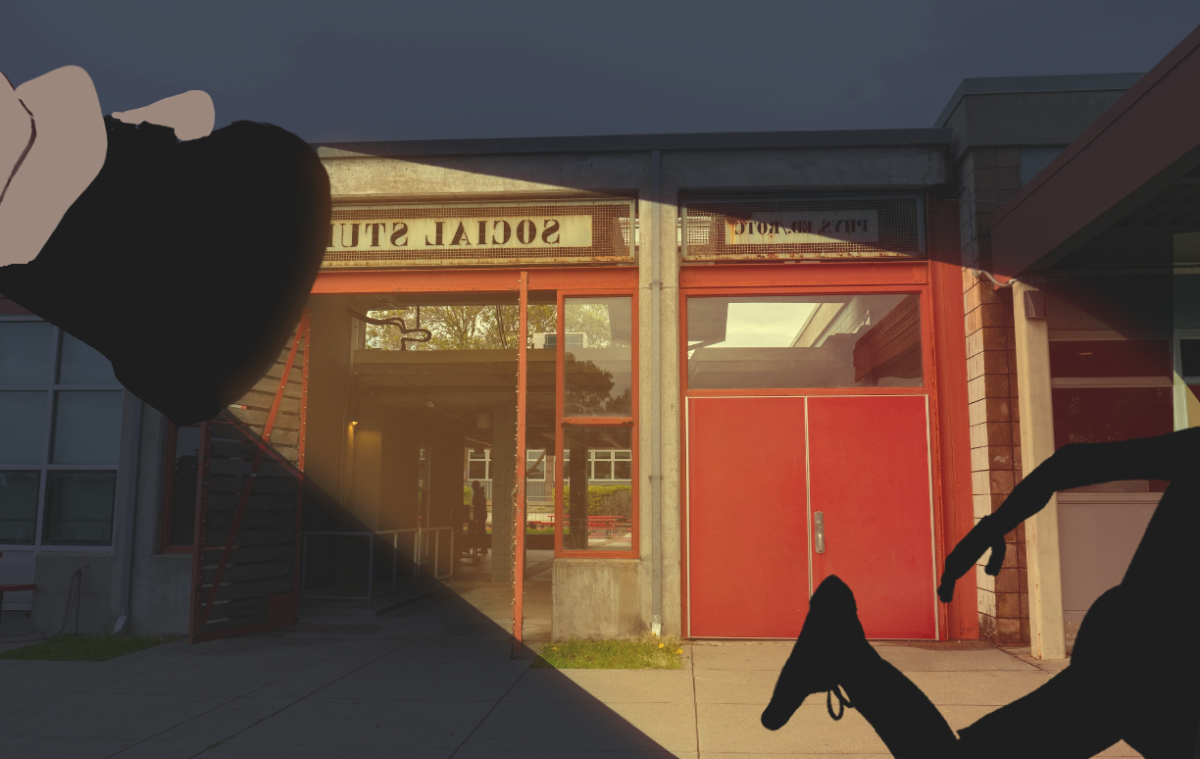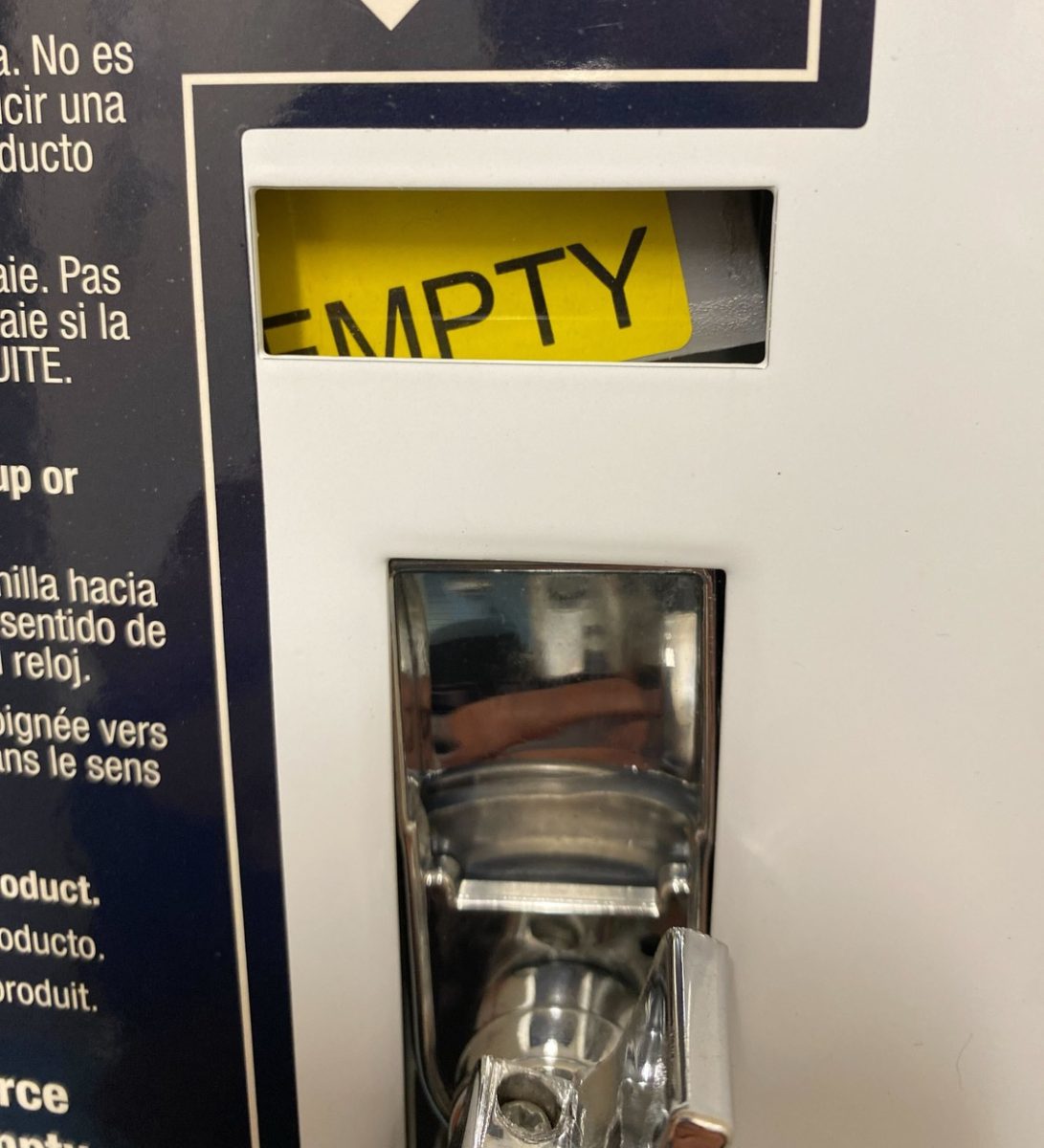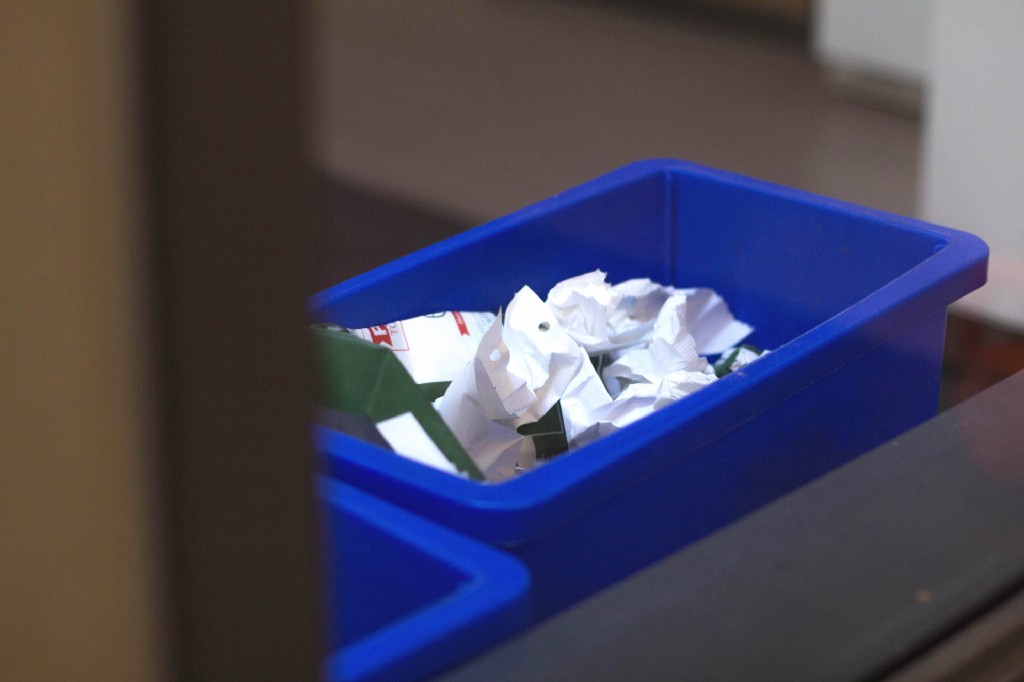
Maintaining waste reduction standards at Lowell is going to be harder this semester now that the Recycling Club has temporarily stopped taking out the recycling bin in the art wing and the new eco-friendly World Language building because there aren’t enough members after last year’s seniors graduated.
The school depends on student volunteers to take out classroom recycling bins. Every Friday, the Recycling Club transfers the recycling from each classroom’s individual small bin to the bigger blue recycling bins that get picked up by the city’s recycling service near the science building.
Custodians, in the normal course of their duties, handle material already set aside for recycling, but recycling programs are not part of their responsibility, according to district custodian supervisor Ulises Parada, citing the custodians’ contract.

This year the club has been reduced to about half of its previous size, according to Recycling Club member senior Rafael Robles. “Last year, the seniors only told other seniors about the club, so there were no underclassmen to replace them this year,” Robles said.
In the beginning of this semester, the club only had about 10–15 active members, according to club president senior Sally Lai. As a result, the remaining members had to cover more areas of the school, which meant they ultimately were spread too thin across the campus, according to club member senior Melanie Zhao.
When it became too difficult to handle this increased workload, the club decided to temporarily discontinue their service to the art wing and World Language building, according to Lai.
In the art wing, classrooms don’t have as much to recycle as other areas of the school, according to Zhao. Additionally, the art wing is the farthest part of the main building from the recycling bin drop off area.
The World Language building classes, on the other hand, recycle a lot. Taking out the recycling in the new World Language building can take twice as long as in the main building and the science wing, according to Robles. After making rounds at the World Language building in the beginning of the semester, the club officers figured that the extra work would not be manageable with fewer members, according to Lai.
One Friday in the beginning of the semester, some of the other club members were sick, so Zhao was the only one available to do the recycling in the World Language building, and consequently was unable to finish by herself because the larger bin filled up.
The school depends on student volunteers to take out classroom recycling.
Cutting out the World Language building from the club’s usual route caused some confusion and miscommunication between the Recycling Club and the custodians, faculty and administration.
At the faculty meeting on Nov. 7, an announcement was made that the Recycling Club would no longer take out the recycling bins in the World language building and art wing. Since the custodians are not legally required to help with the small recycling bins, staff were confused about who was expected to take out the smaller recycling bins.
In order to continue recycling without the Recycling Club or the custodians, World Language and art wing teachers would be responsible for emptying the small classroom bins into the larger bins near the science building, according to assistant principal of Building and Grounds Holly Giles.
Italian teacher Chiara Pelagatti said she would be willing to take up the additional responsibility, but some other World Language teachers are hesitant about doing the recycling themselves.
Chinese teacher Jing Liang, for one, thinks it wouldn’t be hygienic for teachers to handle the recycling. If students don’t dispose of their waste properly, teachers would have to sort out the trash from the recycling, according to Liang. However, Liang does not have a recycling bin in her classroom and directs her students to dispose their waste in the bins in hallway.
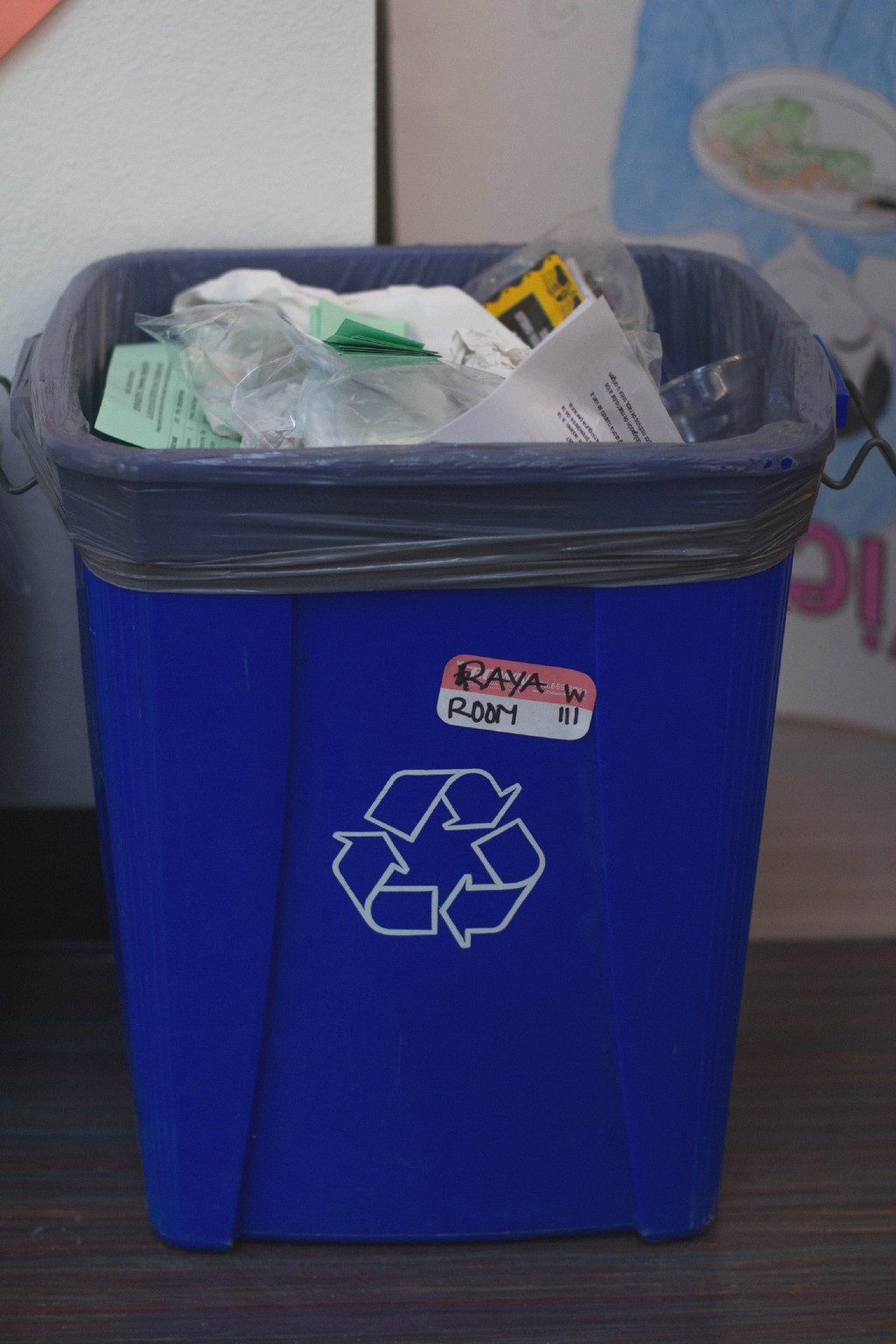
Custodian Song-Sheng Huang helped to resolve the dispute when he volunteered to take out the recycling from the smaller bins in the World Language building every Friday. “If no one does it, I’ll take care of it,” Huang said.
Because he has other duties to perform, such as taking out the garbage and mopping the floor, Huang says this additional responsibility is a weekly hassle for him. The problem is not the time it takes to unload the recycling, but the effort and extra time to roll the bins to the science wing. Although it does not happen often, when his single blue bin fills up, Huang has no other choice than to dump the remaining small bin recycling into the garbage bin.
Huang hopes the Recycling Club will regain their numbers or figure out a way to do the World language building even if it means leaving some recycling behind for him.
The club has since put up recruiting posters and made Radio Lowell announcements.
Lai said the club got at least three more members after social studies teacher William Steele, the club sponsor, sent out an email, by the administrator’s request, to the faculty explaining the situation more in depth and encouraging the teachers to spread the word about Recycling Club to their students.



